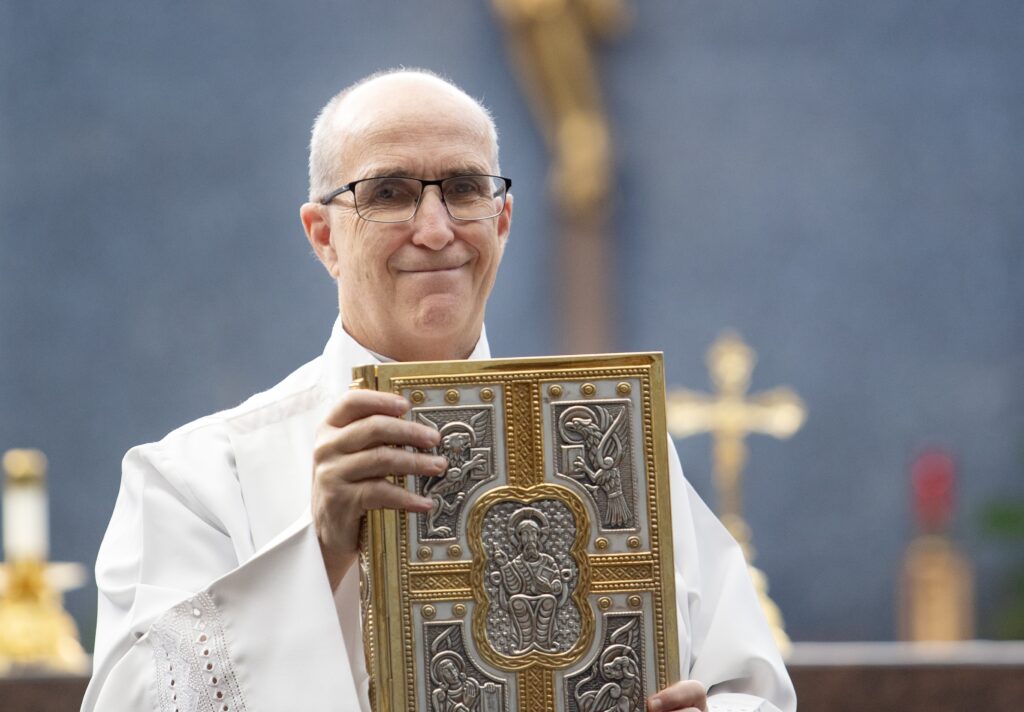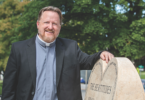
by Deacon Leon Suprenant
Last August, Archbishop Joseph F. Naumann admitted 14 men as candidates for the permanent diaconate. These men had already completed two years of preliminary formation called “aspirancy,” yet those who persevere in the program will not be ordained until 2028. What are they doing now to prepare for ordained ministry?
In a word, plenty.
The candidates’ demanding regimen includes one full weekend per month of formation. It also includes pastoral experiences (the men are currently volunteering with Catholic Charities); daily meditation and the Liturgy of the Hours; service in their respective parishes; and —oh, yeah — responsibilities at home.
Just balancing all these elements can be quite a challenge. Steve Clark says he begins each day spending the first hour or more in praying the Liturgy of the Hours and reflecting on Scripture. In the evening, his wife joins him for evening prayer. Clark reports that this has been a welcome time to step away from the busyness of life and reconnect with God before they spend their evenings together.
All of the men report dramatic growth in their prayer life. Landry Secredou says that formation has taken his prayer “to the next level.”
Gates Brown stresses the importance of consistency. While balancing everything may seem daunting, he says that maintaining the “focus on Jesus” has been the key for him. Phil Frerker finds consistency through a “plan of life”: “We were encouraged early on to create a written ‘plan of life’ to help structure how to spend our days — including daily prayer/meditation and ensuring proper time is spent with family and honoring work commitments. This helped me put time with God first and remove ‘lesser goods,’ like scrolling through social media or news headlines.”
All the men cite the importance of their wives’ support. For example, Jaime Fuentes says, “I wouldn’t have been able to go through formation without the unconditional support of my wife. She has been a significant pillar in my journey, listening and encouraging me every step of the way.”
Several of the men still have children at home, but it’s been a positive. Robert Rojas says that he and his wife have been intentional about involving their young children in the formation as much as possible. Dave Conner reports that formation has been “transformative” not only for himself, but also for his wife and five sons.
Mike Book beautifully sums up the process: “The goal is not to become someone else, but to grow and become more fully myself. I’m not being asked to turn away from my existing life and relationships, but to more fully realize God’s plan for me within my existing life and relationships.”






